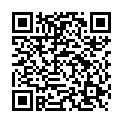|
|
|
| Module code: WIBASc-525-625-FÜ7 |
|
|
2S (2 hours per week) |
|
3 |
| Semester: 6 |
| Mandatory course: no |
Language of instruction:
German |
Assessment:
Written composition with presentation
[updated 13.09.2018]
|
WIBASc-525-625-FÜ7 (P450-0069) Industrial Engineering, Bachelor, ASPO 01.10.2013
, semester 6, optional course
WIB21-WPM-S-901 Industrial Engineering, Bachelor, ASPO 01.10.2021
, optional course, course inactive since 19.09.2023
|
30 class hours (= 22.5 clock hours) over a 15-week period.
The total student study time is 90 hours (equivalent to 3 ECTS credits).
There are therefore 67.5 hours available for class preparation and follow-up work and exam preparation.
|
Recommended prerequisites (modules):
WIBASc-535 Introduction to Scientific Work (with seminar)
WIBASc115 Principles of Business Administration I (BWL I)
WIBASc215 Basics Business Economics II (BWL II)
WIBASc225 Procurement Logistics and Technical Sales and Distribution
[updated 11.02.2020]
|
Recommended as prerequisite for:
|
Module coordinator:
Prof. Dr. Christoph Berger |
Lecturer:
Lehrbeauftragte
[updated 11.02.2020]
|
Learning outcomes:
After successfully completing this module students will:
_ have - as preparation for their later function as managers - acquired knowledge and skills for moderating discussion and conflicts.
_ understand the interrelationships between communication and moderation.
_ be able to apply current moderation and mediation methods for decision-making processes within a company.
_ be aware of the particularities of moderation with regard to different cultural backgrounds.
[updated 13.09.2018]
|
Module content:
1. Moderator
2. Communication as the basis of moderation
3. The basics of mediation
4. A guide to moderation
5. Cultural aspects of moderation
[updated 13.09.2018]
|
Teaching methods/Media:
Interactive seminar. After an input phase by the lecturer - using various thematic examples - moderation and mediation processes are prepared and "played through" by the students. In "role-plays" the participants demonstrate that they can implement the content they have learned. Students will receive electronic lecture notes for the course.
[updated 13.09.2018]
|
Recommended or required reading:
_ Edfmüller, A./Wilhelm, T.: Moderation; Haufe Lexware; 5.Auflage; 2012
_ Funke, A./ Havenith, E.: Moderations-Tools; ManagerSeminare Verlag; 2. Auflage; 2011
_ Freund, U.: Moderationstraining; up next Verlag; _. A.; 2011
_ Hartmann, M./ Funke, R.: Gekonnt moderieren; Beltz Verlag; 4. Auflage; 2010
_ Hartmann, M./ Rieger, M.: Zielgerichtet moderieren; Beltz Verlag; 6. A.; 2012
_ Jiranek, H./Edmüller, A.: Konfliktmanagement, Haufe, 3. A., 2010
_ Tirok, M.: Moderieren; UVK; 2013
[updated 13.09.2018]
|

